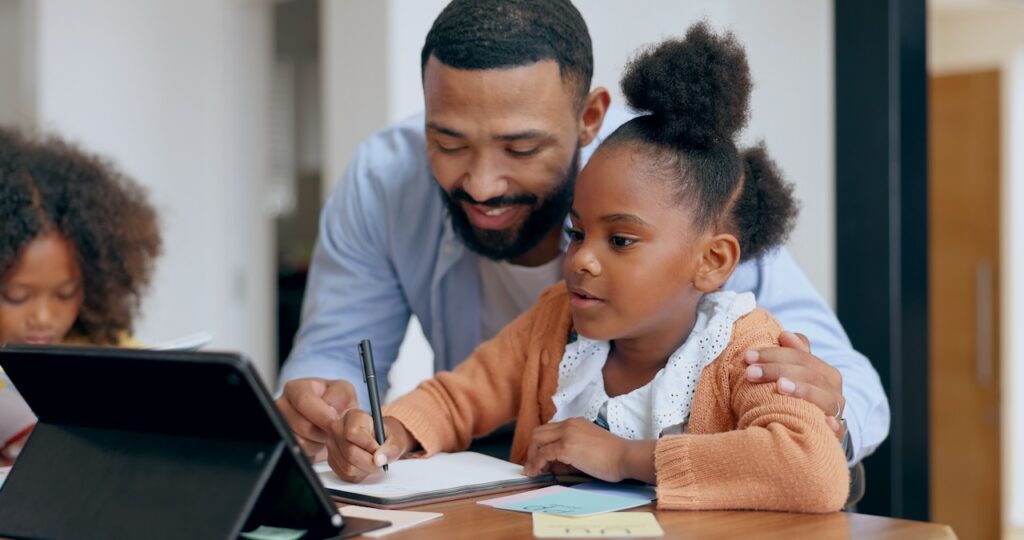While some students have a natural love for reading, other children may find it difficult—or just plain boring.
Many young children struggle with reading, whether it’s because they are missing foundational skills or they have trouble sitting down with a book for longer periods of time.
But just because your child is a reluctant reader doesn’t mean he or she can’t learn to enjoy it.
Making Reading Fun At Home
Getting your child to read doesn’t have to be a daily battle.
There are a number of ways you can make reading more enjoyable for your child, and help turn your reluctant reader into a bookworm. And by learning to make reading fun, your child can develop a of love for reading that will last a lifetime.
Check out these 13 tips for making reading fun (instead of frustrating) and start making reading more enjoyable for your child.
13 Ways To Make Reading Fun For Your Child
- Pick the right books
- Read aloud
- Act out the story
- Encourage all forms of reading
- Choose books about his or her interests
- Create a reading space
- Make connections between books and life
- Let your child choose
- Listen to audio books
- Start a series
- Have “reading hour”
- Take a trip to the library
- Teach reading strategies
Making reading fun starts with selecting a book your child will enjoy reading. Ask your child what kinds of stories he or she likes reading best (Adventure? Fantasy?) Make a list of books in these categories and use it to help your child choose what he or she will read next.
Reading aloud with your child can add a bit more excitement to any book. Make the story more fun by using different voices for each character and an expressive voice for dramatic parts. You can also take turns reading aloud together, choosing a character you will each provide a voice for.
Help your child bring some extra excitement to reading by using his or her imagination. Have your child draw pictures of what he or she is reading, act out the scene, put on a character puppet show, or make up alternate endings.
Reading doesn’t always have to mean picking up a book. Magazines, graphic novels, and newspapers are other great reading materials that feel less like “work” to your child—but they still help your child practice and improve his or her reading skills.
Reading something your child enjoys makes reading less of a chore and more of a fun activity he or she will want to do. Help your child choose books that are related to his or her interests—whether it’s sports, animals, dinosaurs, or something else.
Make a reading area or fort where your child can read and relax on his or her own. Add blankets, pillows, and a variety of books, and your child will have a reading corner where he or she can read a book whenever the urge to read hits.
Make connections between what your child is reading and your child’s own experience. Read adventure books before you take a camping trip, dinosaur books before you visit a museum, and so on. This will help make reading (and learning) more exciting for your child.
Let your child choose what book he or she wants to read. Giving him or her a choice helps your child feel like he or she has more control, so your child will be more excited to sit down with the book he or she has chosen.
For children who find reading frustrating, audio books are a great alternative to help make reading more enjoyable—while still helping your child improve his or her comprehension skills.
Book series are a great way to keep your child’s interest in reading high and eliminate the problem of figuring out what to read next. Another option is reading multiple, non-series books written by the same author.
Each day, schedule reading time for your child to sit down and read a chapter of a book. During this time, talk to your child about what is happening in the book, what his or her favourite part was, and what he or she thinks will happen next.
The library is a great resource where your child can find lots of books to read. Take advantage of the selection at your local library by letting your child pick choose a book (or two!) that catches his or her attention.
Many children dislike reading simply because they don’t have the necessary reading skills. If your child avoids opening a book at all costs, talk to his or her teacher about strategies to help develop reading motivation. Once you have some tips to try, work with your child to build reading motivation together.
If your child needs help developing his or her reading skills, we can help! Contact a location near you to learn more about our programs.







